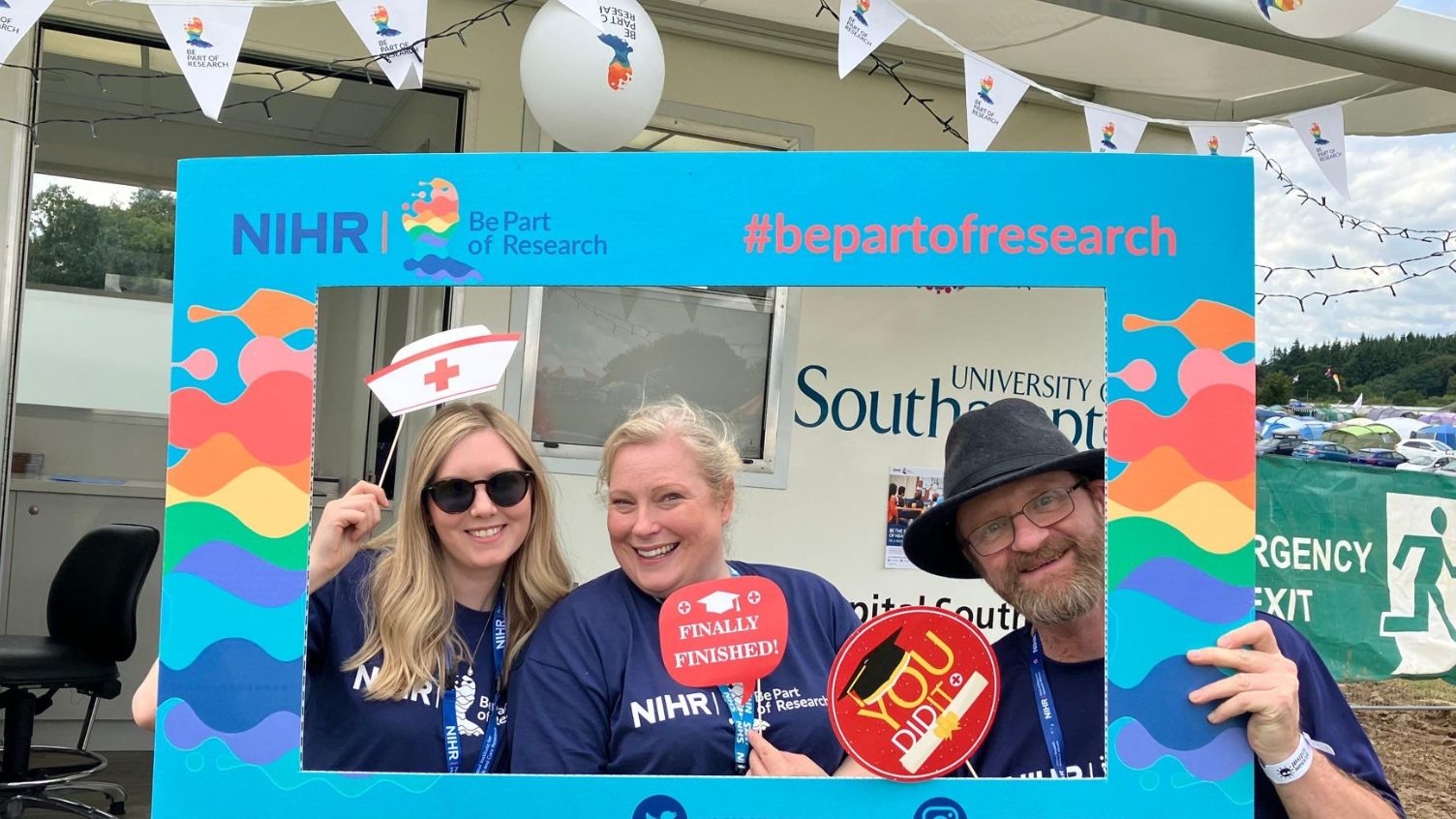‘The only way we’re going to beat cancers is by doing stuff like this’ - Chris’ Research Story
- 21 September 2021
- 3 min read
An NHS worker in West Yorkshire experienced first hand what it was like to be part of research at the hospital where he worked after being asked to participate in a cancer study.
The Add Aspirin study is a five year project which aims to find out whether taking aspirin daily after treatment for an early stage cancer can prevent the cancer from returning.
An NHS worker in West Yorkshire experienced first hand what it was like to be part of research at the hospital where he worked after being asked to participate in a cancer study.
Chris, who works in CT and Radiography at Airedale NHS Foundation Trust in West Yorkshire, was invited to take part in the Add Aspirin study after being diagnosed with stage two rectal cancer in 2018.
"I got a leaflet and I was quite interested," said Chris. "I feel it's my duty to try and help out as best as I can - working in the hospital, I see the benefits of these things."
The Add Aspirin study is a five year project which aims to find out whether taking aspirin daily after treatment for an early stage cancer can prevent the cancer from returning. Participants are required to take one tablet per day; either a dose of aspirin, or a placebo. Participants do not know which tablet they are taking.
As well as taking a daily tablet, Chris has a meeting with a supervisor every six months to check his blood pressure, fill out questionnaires, and receive further supplies of tablets.
"It's no hardship really - the hardest part is remembering to take the tablet. Also from a personal point of view, you do get more follow up appointments, you're more closely scrutinised.
"You win by being more carefully monitored, and the NHS wins and society wins by you helping, so it's a win-win situation."
The study is jointly funded in the UK by Cancer Research UK and the National Institute for Health Research, and is taking place in hospital sites across the UK, as well as at some sites in India and the Republic of Ireland.
Chris believes it's important that people continue to volunteer for research studies to help improve outcomes for future patients:
"It's your opportunity to put back something that you've benefited from. I view it as [the treatments] I'm having now, I'm benefiting from someone else having done a trial and I see myself how it helped me.
"It makes you feel good about yourself as well, it makes you feel that you're helping, that you're being useful- you could almost call it a bit selfish really. It makes you feel that you're doing something to help other people. You don't know who it could be helping, it could be your next door neighbour, it could be your family, it doesn't matter really.
"The only way we're going to beat cancers is by doing stuff like this and it may well be that the treatment that's being trialled makes no difference- it doesn't matter. It's the fact that someone's got the idea that it could make a difference. It's important to find out."
To find out more about the Add Aspirin study, visit http://www.addaspirintrial.org/
For more information on taking part in research studies, visit the Be Part of Research website.


